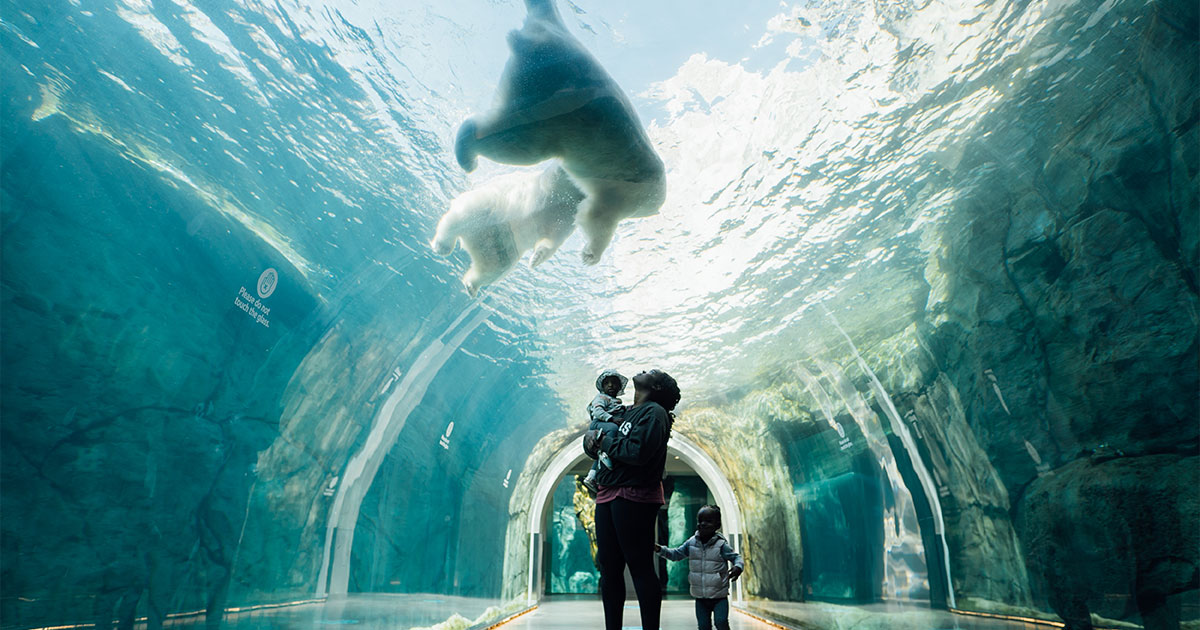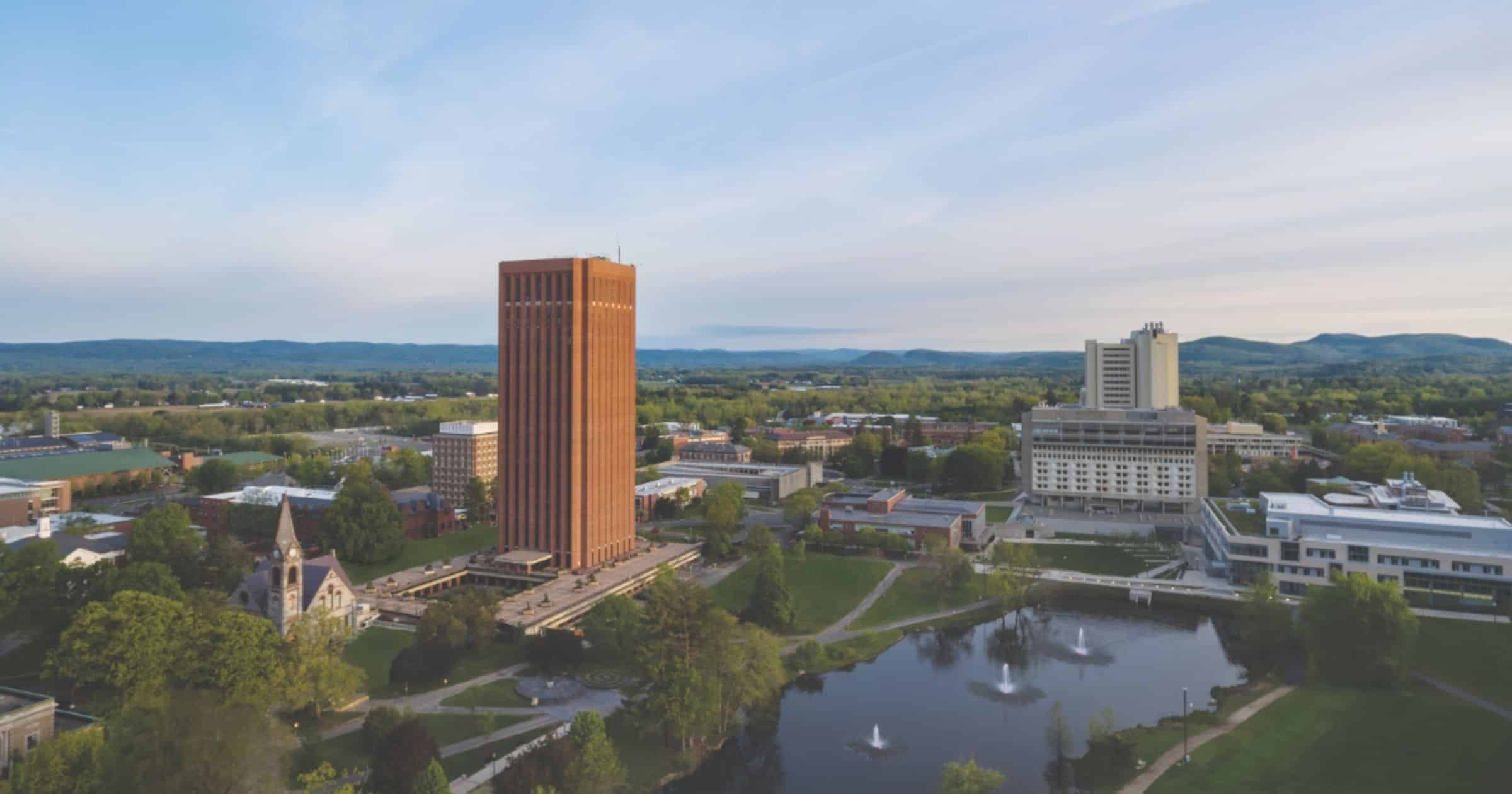In the center of Canada lies a beautiful province full of a wide variety of landscapes and incredible outdoor experiences: Manitoba.
Known as Canada’s Heart, Manitoba is home to the capital, Winnipeg, the polar bear capital of the world, Churchill, and much more.
From the art, history and culture of Canada’s Indigenous people to the great outdoors, there’s tons for student groups to see, do and learn in Manitoba. Let’s look at two of the top destinations:
CHURCHILL
Churchill, an isolated town (pop. 900) on Manitoba’s northern Hudson Bay coastline, is a magnet for outdoor adventurers seeking a wildlife experience similar to a safari in Kenya or a visit to the Galapagos Island. Experiencing Churchill’s natural wonder triumvirate—kayaking with belugas, chasing northern lights and locking eyes with a polar bear—is a bucket list adventure.
Start with Churchill Northern Studies Centre, located on the coast of Hudson Bay, which hosts school programming for student groups to explore the three distinct biomes of the subarctic: arctic tundra, boreal forest and arctic marine. Groups can stay onsite in CNSC’s dormitory rooms. They’ll learn alongside arctic researchers, making this program a once-in-a-lifetime opportunity.
Churchill is known as the ‘polar bear capital of the world.’ It is the most accessible destination to view polar bears in the wild. Depending on the season, visitors can view swimming bears from boats (July-August), from the safety of massive tundra vehicles (October-November), or by trekking ground-level with them at a fly-in eco wilderness lodge. There are plenty of options for accommodations from luxury lodges to remote eco lodges and a mobile Tundra Buggy lodge.
In July and August, another white mammal is the star in Churchill: the beluga whale. Thousands of whales migrate to Churchill and Seal river estuaries from the Hudson Bay each summer near Churchill, and visitors to this sub-arctic frontier town can choose their own adventures for an up-close experience: see pods from a boat, kayak or stand up paddleboard among them.
Finally, Churchill boasts over 300 nights of aurora borealis activity a year, but the peak months to view the awe-inspiring northern lights is during February and March when the skies are darkest and clearest. Chasing northern lights during frigid temperatures is made comfortable by a variety of viewing experiences: get a 360-degree view from a bubble-like Aurora Dome, recline for a light show in an Aurora Pod, or observe from the open-air deck of a yurt deep in the boreal forest. Or dine under the northern lights in a Tundra Buggy turned restaurant out on the frozen tundra as part of a culinary experience with Frontier’s North Adventures.
WINNIPEG
The capital of Manitoba is also the largest city in the province (and the home of 2023’s SYTA Conference), with dozens of great attractions for student groups around the area. Here are just a few of the top suggestions from Travel Manitoba.
The Leaf–Canada’s Diversity Gardens is one of Manitoba’s newest attractions with indoor and outdoor spaces that explore connections between people and plants. The Gardens at The Leaf is a 30-acre revitalized outdoor space divided into six uniquely themed gardens touching on connections with food, our senses and Indigenous cultures and languages.
Qaumajuq is a 2021 addition to the Winnipeg Art Gallery. Its architecture was inspired by Canada’s northern landscape and the center holds the world’s largest public collection of contemporary Inuit art at over 14,000 pieces, each piece representing the story of Canada’s North.
The Manitoba Museum has updated several of its core nine galleries. The new Prairies Gallery tells the story of Indigenous Peoples in Manitoba using a beautiful plains tipi, a Red River cabin and cart and other artifacts.
Canadian Museum for Human Rights is the world’s only museum dedicated to the topic of global human rights issues. Through 10 permanent galleries, learn and reflect on the triumphs and failures of the human spirit.
The Royal Aviation Museum of Western Canada is home to a large collection of aircraft ranging from bush flying, military, passenger, experimental aircraft and thousands of aviation artifacts.
FortWhyte Alive is home to 660 acres of forests, lakes and trails and it’s common to spot bison, whitetail deer, waterfowl, and countless other wildlife. Bike the trails or snowshoe in winter, or opt for the open water in a canoe or rowboat. In winter, go ice fishing and tobogganing, summer’s hiking and bird watching, and fall’s spectacular waterfowl migration. Open 364 days a year, FortWhyte Alive is the spot for animal and nature lovers alike.
For more information, visit travelmanitoba.com.
Photo courtesy of JP Media Works – Courtesy of Travel Manitoba.




